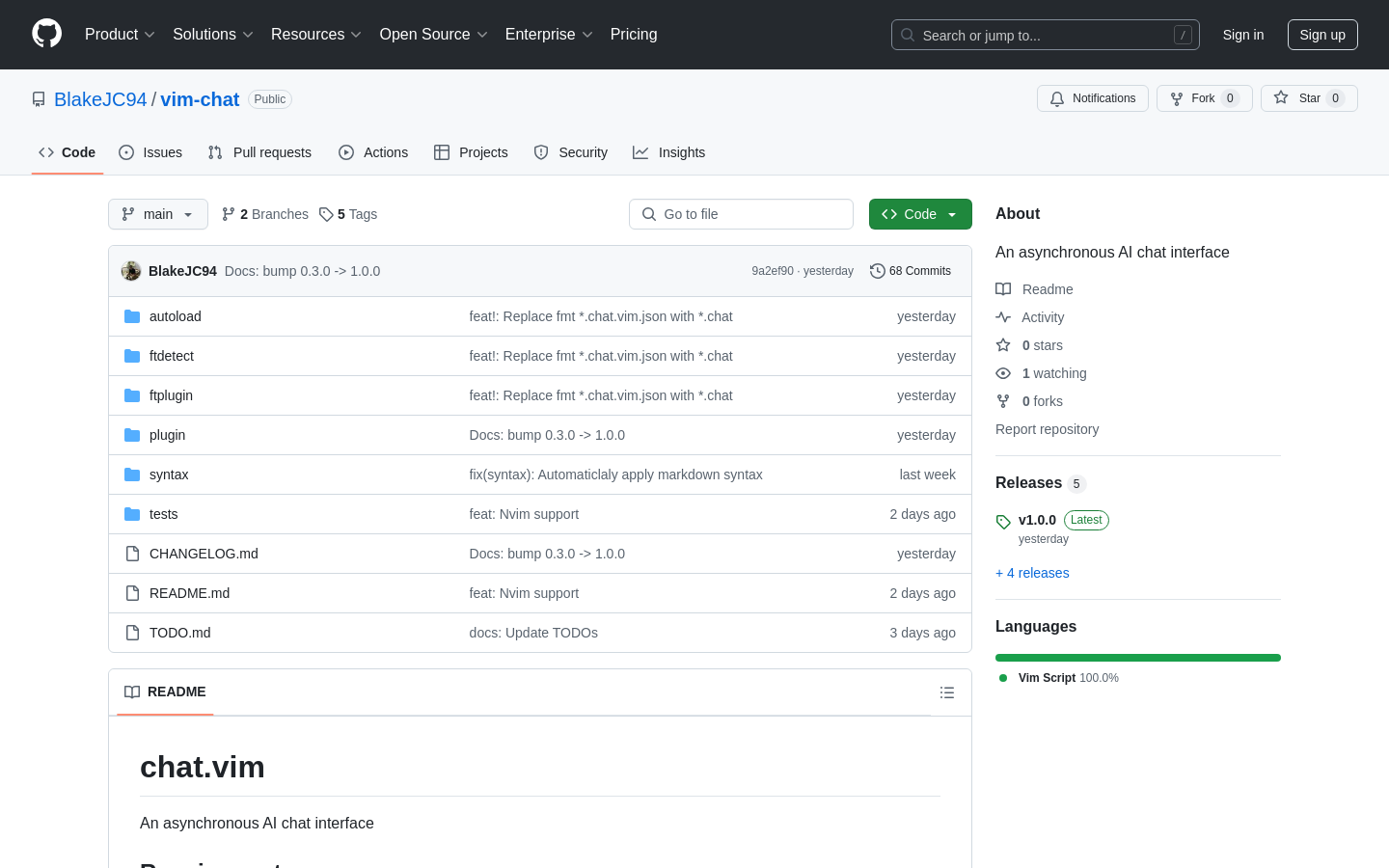

Highlight 1
The asynchronous functionality allows for uninterrupted workflow, providing a seamless user experience when querying external services.
Highlight 2
The plugin's minimal dependencies (only requiring curl and Vim/Neovim) simplifies installation and broadens accessibility for users.
Highlight 3
Its expandability for different endpoints beyond just ollama offers versatility, appealing to a wide range of users.

Improvement 1
The app could benefit from a clearer user interface within Vim, providing users with visual cues or feedback when queries are sent and results are received.
Improvement 2
Incorporating configuration options or command-line parameters to set various endpoints and customize user settings would enhance usability.
Improvement 3
Adding comprehensive documentation and examples would help new users understand the plugin's capabilities and how to get started quickly.
Product Functionality
Consider introducing additional features such as real-time notifications or a history of previous queries for users to refer back to.
UI & UX
Enhancing the user interface within Vim by adding visual feedback during async operations would help create a more intuitive experience.
SEO or Marketing
Improving the visibility of the GitHub repository through SEO-friendly content, proper descriptions, and tutorials may attract more users.
MultiLanguage Support
Implementing multi-language support could broaden the user base by making it accessible to non-English speakers.
- 1
What is vim-chat?
vim-chat is a Vim/Neovim plugin designed to enable users to send queries asynchronously without disrupting their editing work, primarily targeting interactions with endpoints like ollama.
- 2
How do I install vim-chat?
To install vim-chat, ensure you have curl and a recent version of Vim or Neovim. Then, follow the installation instructions provided in the plugin's repository on GitHub.
- 3
Can vim-chat work with endpoints other than ollama?
Yes, while it is built to work with ollama, vim-chat should theoretically function with any authenticated endpoint, including OpenAI.
